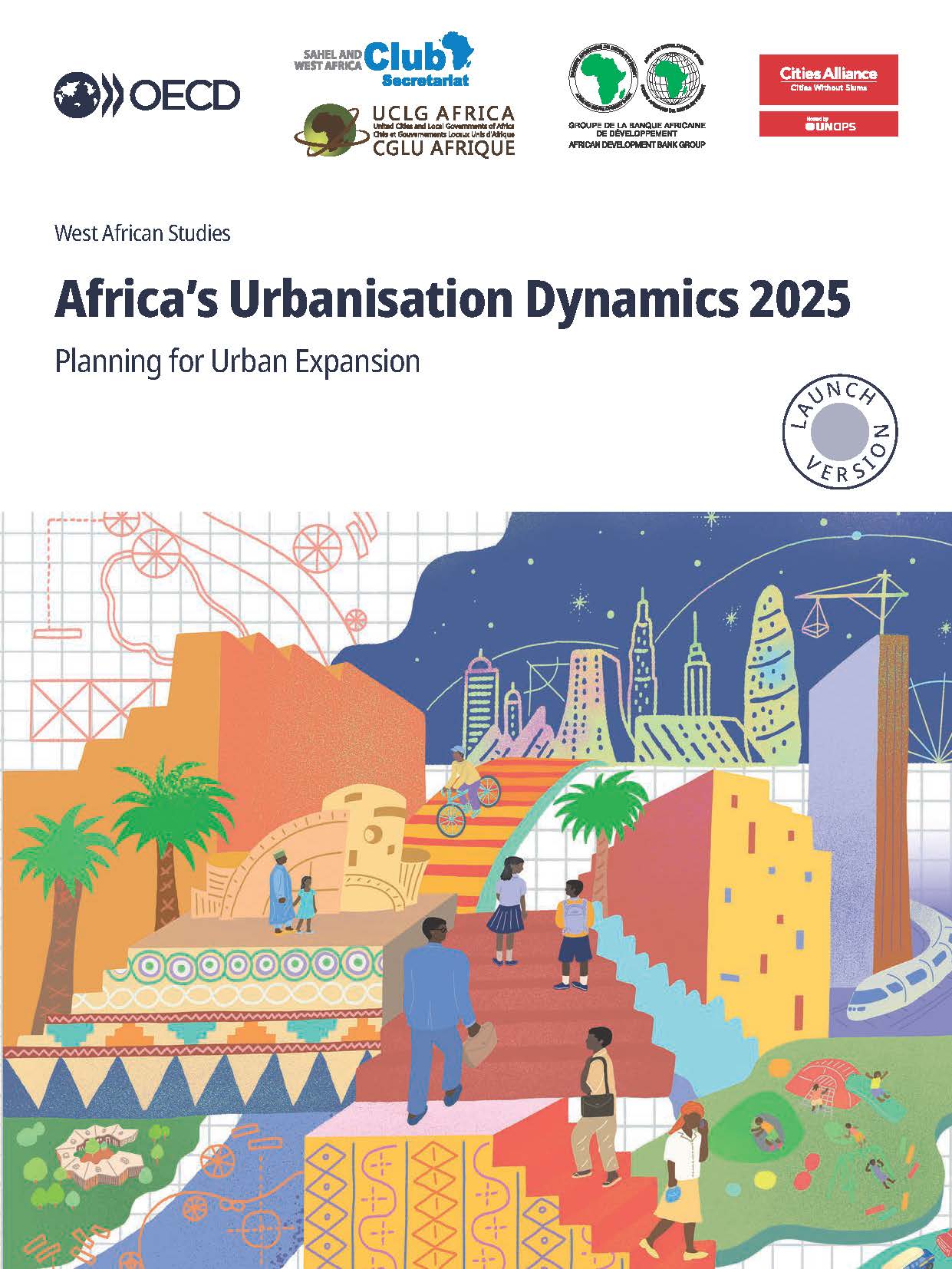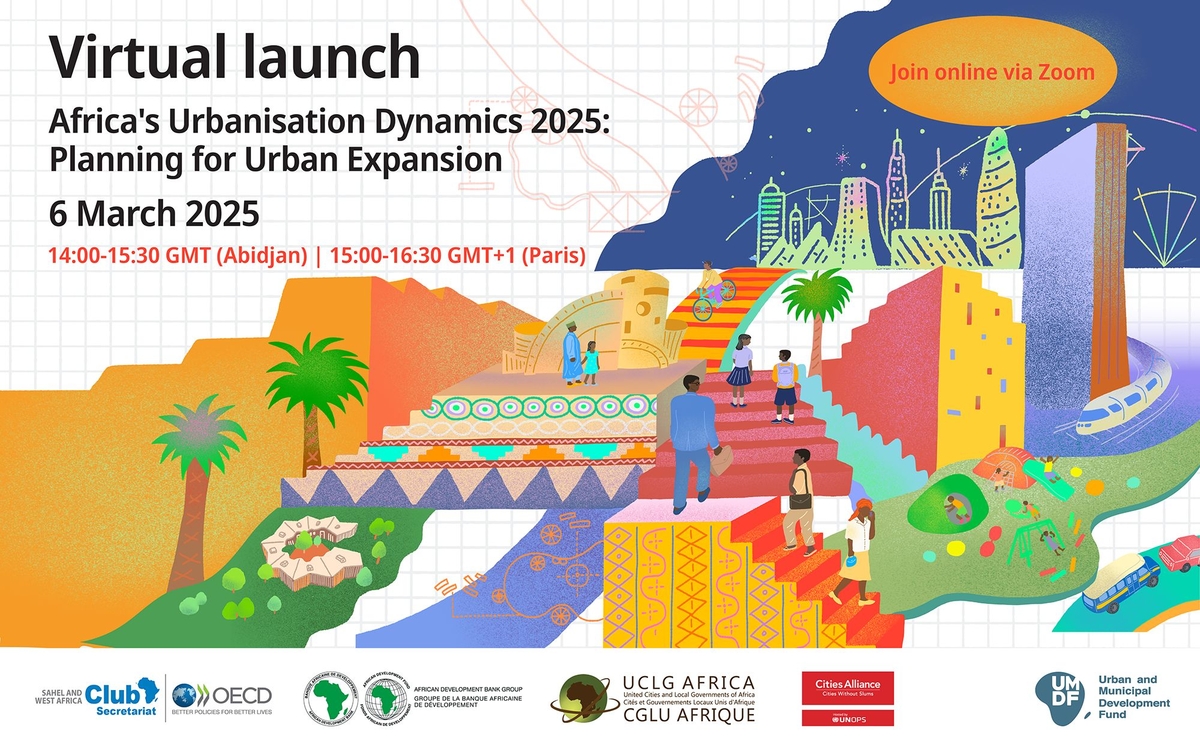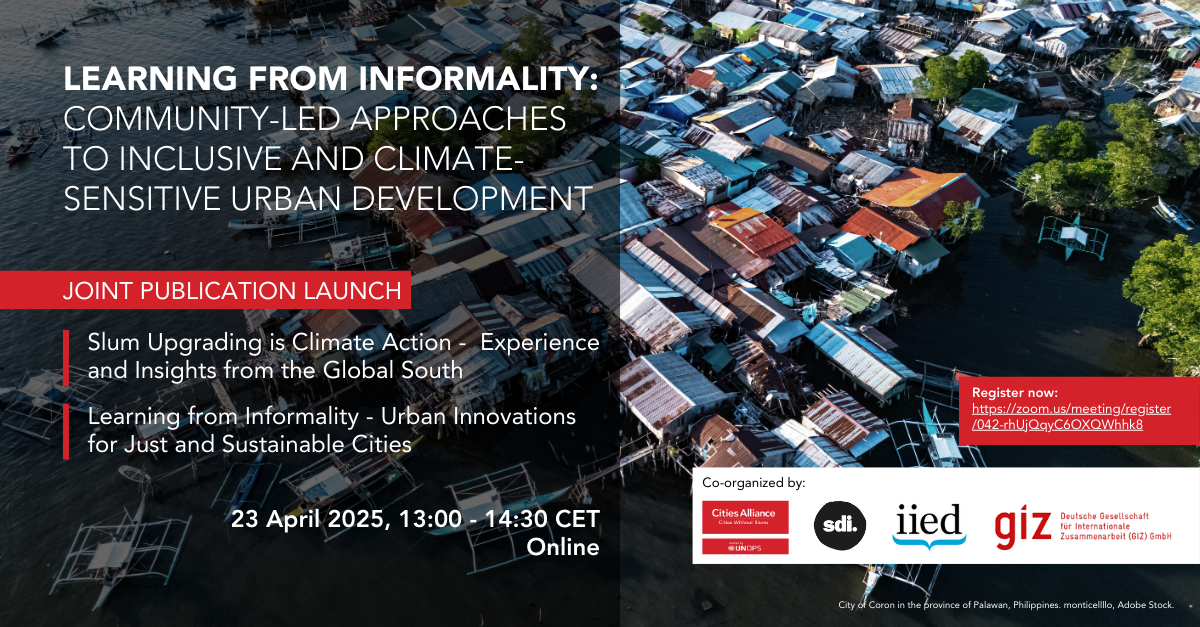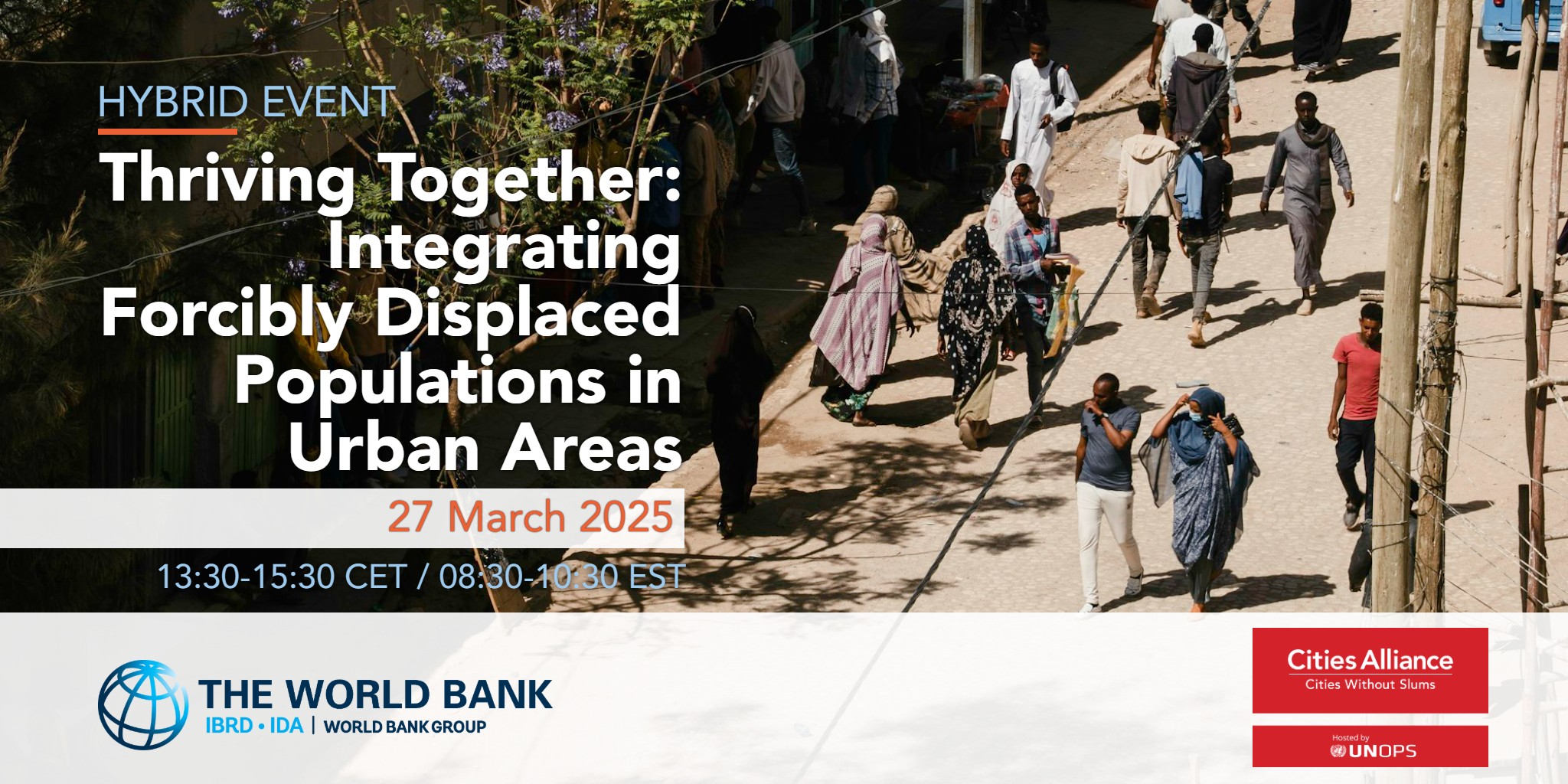- Who We Are
- How We Work
- Regional / Country Initiatives
- Legacy
- Core Themes
- Working Groups
- Portfolio & Results
- Newsroom
- Resources
Launch: Africa’s Urbanisation Dynamics 2025 - Planning for Urban Expansion

Launch of the Africa’s Urbanisation Dynamics 2025: Planning for Africa’s Urban Expansion report, a joint publication by OECD, AfDB, UCLG Africa and Cities Alliance.

Africa is undergoing an unprecedented urban transformation. Over the next three decades, the continent’s cities will double in size, adding 700 million new urban residents and bringing Africa’s total urban population to 1.4 billion by 2050. This rapid expansion presents urgent challenges but if managed well could offer immense opportunities for economic development, sustainability, inclusiveness and resilience.
On 6 March, Cities Alliance will co-host a webinar to launch a joint report on Africa’s Urbanisation Dynamics 2024: Planning for Africa’s Urban Expansion written in collaboration with the AfDB, the OECD/SWAC, and UCLG Africa. The publication provides a comprehensive view to date of Africa’s urbanisation trends and aims to explore the implications for urban planning, governance and financing.
The virtual launch will highlight the report’s key findings and feature discussions with key experts to explore strategies to overcome obstacles to efficient urban expansion in African cities, including informality and the lack of finance. It will also touch upon policy approaches to scale urban investments, particularly in housing.
REPORT SUMMARY
a) Key findings (scroll to see the graphics)
By 2050, 80 per cent of Africa’s demographic growth will be absorbed in urban areas as the level urbanisation rate rises to 64 per cent. Nigeria, Egypt, Ethiopia, and the Democratic Republic of the Congo alone will account for over one-third of Africa’s total urban population. The continent will therefore have more cities, in particular large ones in which population growth will be concentrated.
Driven by population growth, built-up areas will see strong urban expansion which will have important impacts on the overall functioning of the city, the delivery of infrastructure and services and the environment.
Projections of urban expansion like the ones contained in this report will be crucial for planning and public policies to meet the challenges ahead.
b) Effective governance is key to managing urban expansion
Good governance plays a central role in managing this urban transition. The need to strengthen the relevance, capacity and speed of urban planning and policies is now and requires innovation that reflects local realities and new challenges. At national levels, national urban policies (NUP) and national development policies (NDP) will be instrumental to achieving change.
The need for multi-level governance with clear objectives will be achieved through the promotion of decentralisation and participatory processes. The empowerment of local governance and their strengthened capacities is crucial to manage land use, planning and deliver services to all.
Land governance systems and the jurisdictional fragmentation will also need to be improved to secure tenure and deliver land for use effectively at the scale required.
c) Financing Africa’s urban growth
Urban financing remains one of the most pressing challenges for African cities. Financing urban expansions requires a long-term investment in particular climate-resilient solutions that should be built into the design of infrastructure and service delivery from the outset.
Smaller, cheaper projects can deliver results at a pace and scale required by rapidly growing cities.
There is a simultaneous need to spend more to meet current challenges and seize opportunities brought by urban growth but also the need to spend better to better align investments with the needs and realities of residents and businesses. Leveraging alternative sources of finance will be crucial to supporting the continent’s urban expansion.
SPEAKERS
Moderation: Nana Touré, Director OECD / Sahel and West Africa Club
Opening remarks: Greg Munro, Director of Cities Alliance
Presentation of the report’s findings
- Philipp Heinrigs, Head of Division, Cities and Urbanisation, OECD / Sahel and West Africa Club
- Julian Baskin, Senior Urban Advisor Cities Alliance
- François Yatta, Director of Operations and Technical Assistance at UCLG Africa
- Stefan Atchia, Manager, Urban Development Division AfDB
Discussants
- Ruth Nakatudde, President, Professional Urban Planner's Association of East Africa
- Kecia Rust, Executive Director and founder of the Centre for Affordable Housing Finance in Africa (CAHF)
Q&A
Closing remarks: Solomon Quaynor, Vice-President, Private Sector, Infrastructure and Industrialization, African Development Bank













